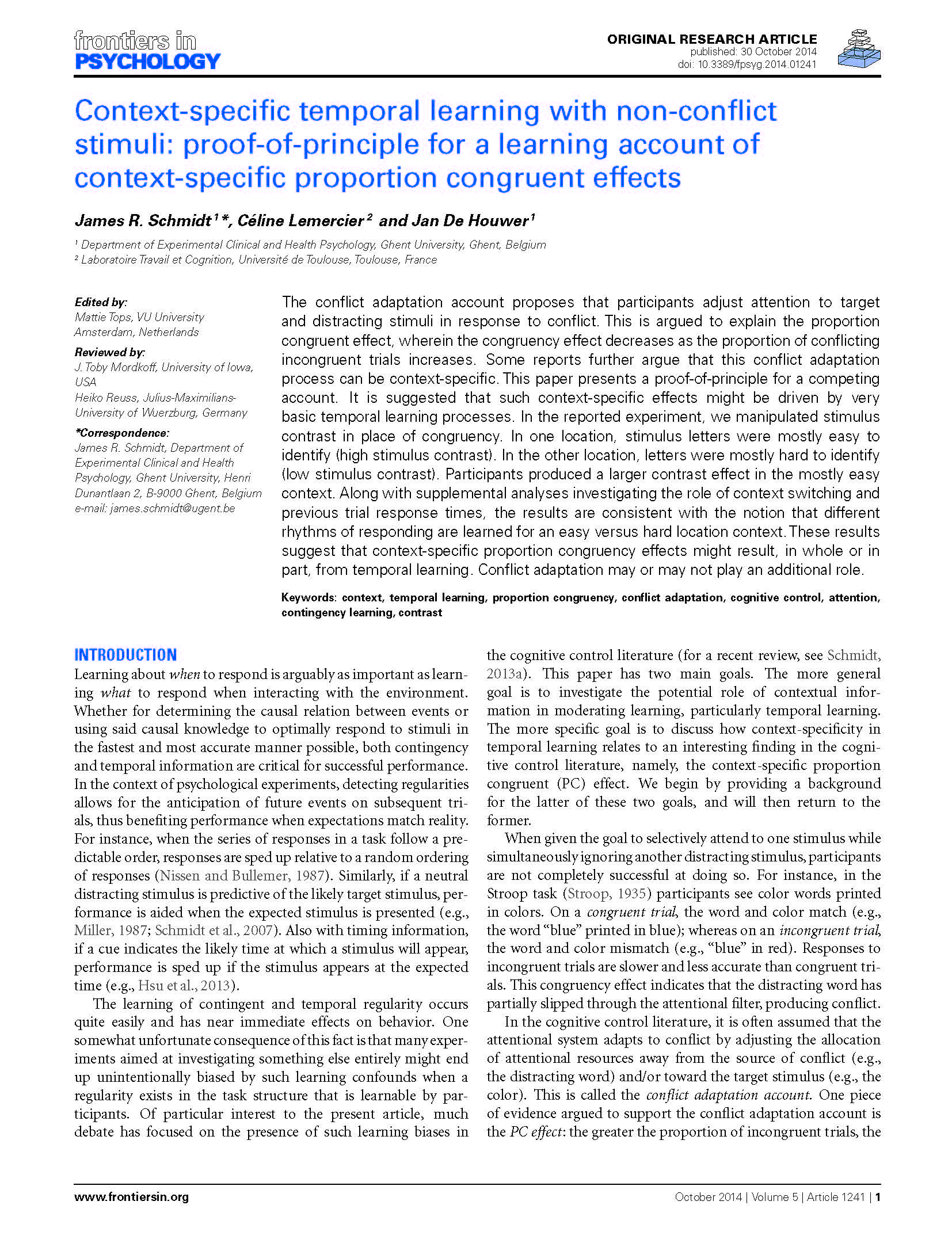The conflict adaptation account proposes that participants adjust attention to target and distracting stimuli in response to conflict. This is argued to explain the proportion congruent effect, wherein the congruency effect decreases as the proportion of conflicting incongruent trials increases. Some reports further argue that this conflict adaptation process can be context-specific. This paper presents a proof-of-principle for a competing account. It is suggested that such context-specific effects might be driven by very basic temporal learning processes. In the reported experiment, we manipulated stimulus contrast in place of congruency. In one location, stimulus letters were mostly easy to identify (high stimulus contrast). In the other location, letters were mostly hard to identify (low stimulus contrast). Participants produced a larger contrast effect in the mostly easy context. Along with supplemental analyses investigating the role of context switching and previous trial response times, the results are consistent with the notion that different rhythms of responding are learned for an easy versus hard location context. These results suggest that context-specific proportion congruency effects might result, in whole or in part, from temporal learning. Conflict adaptation may or may not play an additional role.
Context-specific temporal learning with non-conflict stimuli: Proof-of-principle for a learning account of context-specific proportion congruent effects
